Two great cycling rivals, Fausto Coppi and Gino Bartali were protagonists of an exceptional derby (a football match between local rivals. i.e. teams that are from the same city or the same part of the country) which took place on 14 January 1950 at the Milan Arena. Football (calcio) was the second popular sport after cycling, in post-war Italy.
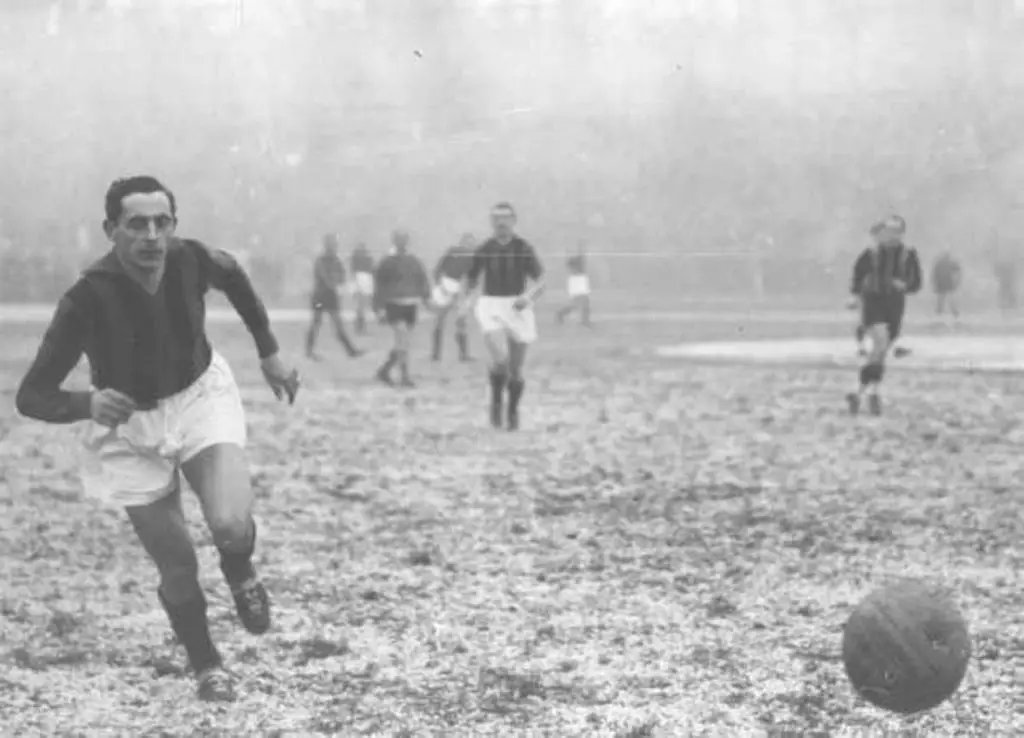
That unprecedented Milan-Inter derby brought twenty thousand spectators to the stadium. The referee was Giuseppe Meazza (23 August 1910 – 21 August 1979), also known as il Balilla (means little boy, Meazza was short, only 169 cm tall), who played for both Inter and Milan in his successful career as a player. He was assisted by four exceptional linesmen: Costante Girardengo, Gaetano Belloni, Alfredo Binda, and Learco Guerra. Four Italian legends of cycling.
Rossoneri colors (red/black, colors of Milan) were chosen by “the cyclists from the north”, led by Coppi – after all the Campionissimo was a Milan supporter, and the “team of Tuscan cyclists” led by Bartali took the field for the Nerazzurri (black/blue, colors of Inter).
The kick-off was Tino Scotti (see notes 1), who went from a footballer to the Inter youth teams before becoming one of the most beloved theatrical actors of the time, nicknamed “the knight of the stage”.
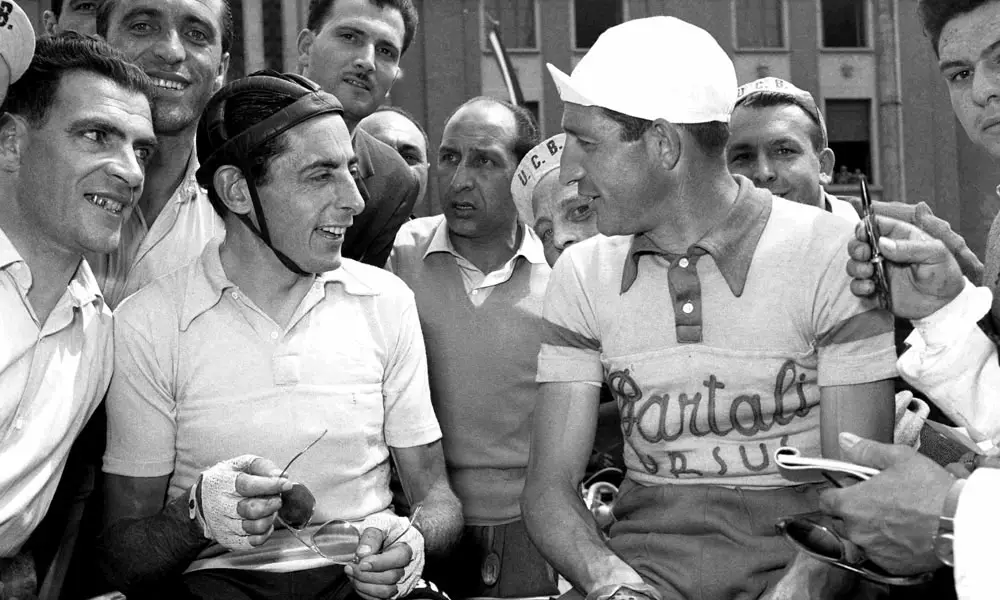
Related: Coppi e Bartali, Bartali e Coppi
More than just a football match
More than just a football match between Milan and Inter, that match at the beginning of January ’50 pitted Coppiani against Bartaliani (Coppi supporters against Bartali supporters). A challenge that, for the first and only time, moved from the streets of the Giro d’Italia and the Tour de France to a football field. Among the Rossoneri ranks, Fiorenzo Magni was center forward, and the Friulian Oreste Conte, Bianchi rider, winner of several stages of the Giro between ’41 and ’54, was also a striker.
Coppi played as a right-wing forward and his brother Serse played as a midfielder. Coppi’s team played with the formation of 5-3-2.
Among the Nerazzurri, Alfredo Martini was center forward while Bartali positioned himself on the right-wing, like his eternal rival Fausto. Vito Ortelli, a cyclist who boasted an Italian title on the road and two on the track, was also part of the Inter’s squad.
The result was: Coppi’s team, Milan beat Bartali’s Inter 6-0. Coppi scored the last goal.

The most exciting moment of the match came in the 22nd minute of the second half. Coppi, picking up a throw from Conte, overtook two opponents. A few meters from Martini, who appeared in front of him in desperate exit, the Heron put the ball in the net with a precise diagonal. A pure right-winger goal!
The roar of joy from the Arena greeted Fausto Coppi’s exploits.
Luigi Casola (11 July 1921 – 6 April 2009), who won stages 4 and 6 of the 1948 Giro d’Italia, made a hat-trick.

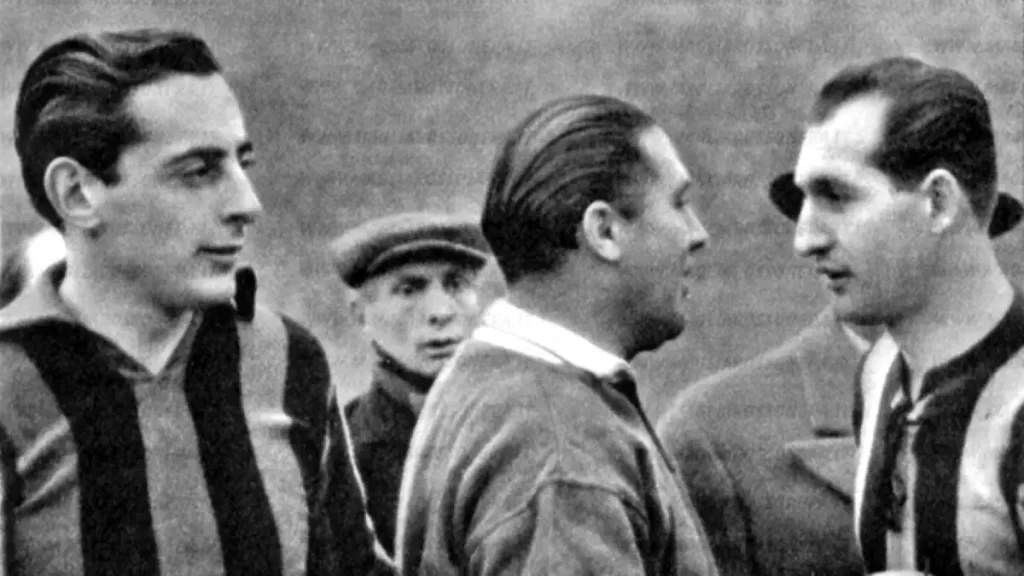

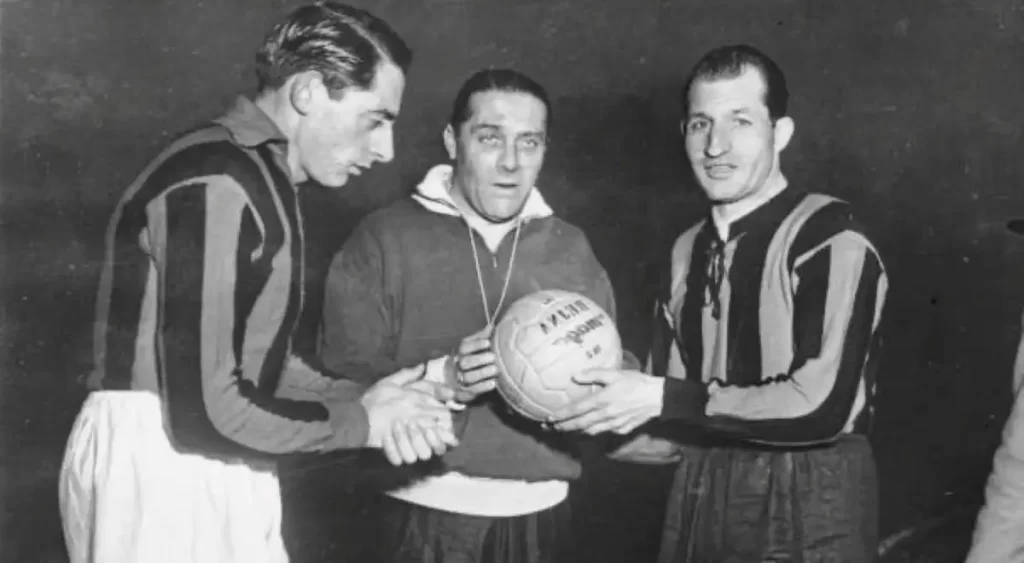
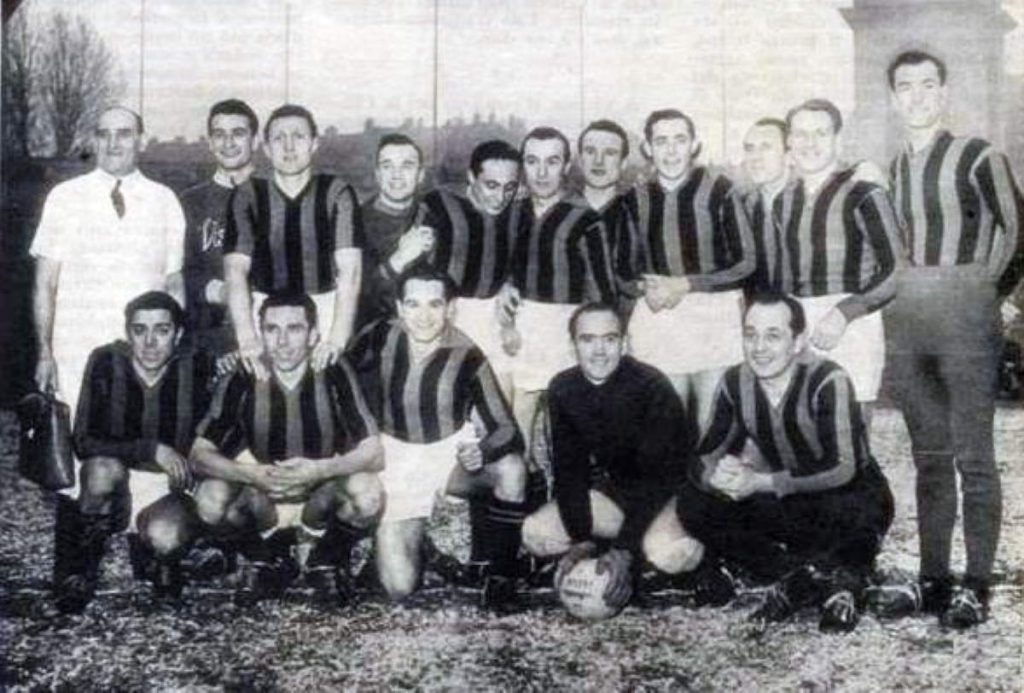
That year, Fausto Coppi won Paris-Roubaix, La Flèche Wallonne, and Giro della Provincia di Reggio Calabria, a road bicycle race held annually in Province of Reggio Calabria, Italy, between 1920 and 2012.
Notes
- Tino Scotti (16 November 1905 – 16 October 1984) was an Italian film actor. He appeared in 65 films between 1940 and 1984. He was born in Milan, Italy, and died in Tarquinia, Italy.
Sources
- Fausto Coppi on Wikipedia
- Gino Bartali on Wikipedia
- UCI Elite Men Road Race World Champions: The Complete List [1927-2025] - September 28, 2025
- What Is Zone 2 In Cycling? - September 12, 2025
- The Turkish Flag at the Tour de France: Who’s Waving It at the Finish Line? - July 30, 2025

